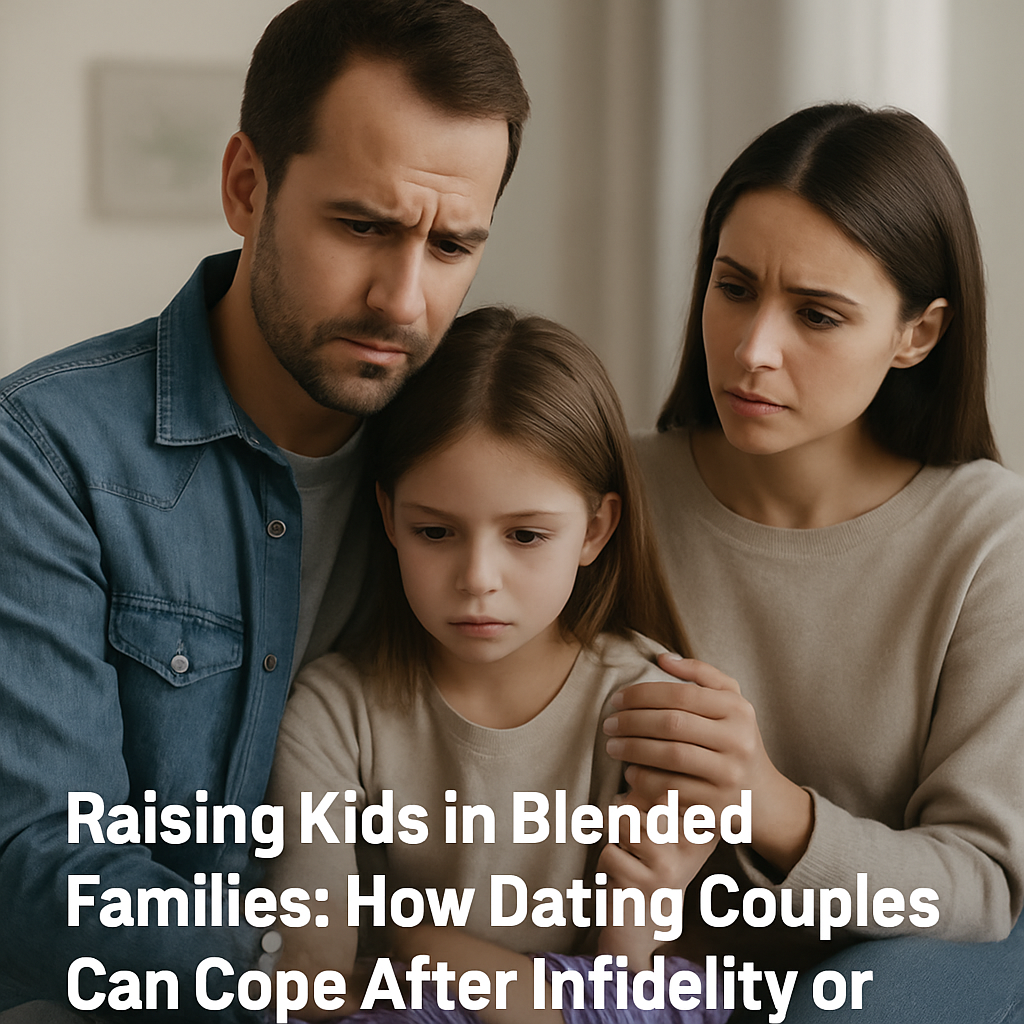
Blending families is never simple. When infidelity or divorce is part of the story, things get even more complicated—especially for dating couples trying to build something meaningful while supporting kids through the fallout. Whether you’re the parent or the new partner, you’re stepping into a sensitive situation that demands empathy, patience, and serious communication skills.
This article breaks down what dating couples need to know to raise healthy, emotionally supported kids in blended families shaped by betrayal or broken trust. No sugarcoating—just honest guidance to help you do right by the children and each other.
1. Understand What the Kids Are Going Through
Keyword: effects of divorce on children
Before trying to “blend” anything, recognize that the children didn’t choose this. Whether they’re your biological kids or your partner’s, they’re navigating:
- Confusion, fear, or sadness after divorce
- Anger or mistrust if infidelity was involved
- Loyalty conflicts between parents and stepparents
- Anxiety about change or being “replaced”
You don’t need to fix all their emotions—but you do need to acknowledge them. Let them feel what they feel. Ask open questions. Listen without defending anyone.
Tip: Avoid rushing the relationship. Let kids take the lead in bonding with the new partner.
2. Build Trust From the Ground Up
Keyword: rebuilding trust after infidelity
If your relationship started after infidelity—especially if there was overlap—the trust between co-parents is already fragile. The same goes for how the kids see your new relationship.
Rebuilding trust means:
- Being transparent with your intentions
- Avoiding badmouthing exes or sugarcoating the past
- Following through on promises, big and small
- Letting actions, not words, speak
If you and your partner are still figuring out your own trust issues, tackle that first. Kids are extremely perceptive; they pick up on tension even if you think you’re hiding it.
3. Get on the Same Page About Parenting
Keyword: co-parenting communication
As a dating couple, you’re not a full parenting unit yet—but you are influencers in the child’s life. You and your partner should talk through:
- Household rules: What’s non-negotiable?
- Boundaries: What role does the non-parent play in discipline or decisions?
- Communication: How will you handle conflicts in front of kids?
Don’t try to “parent” before there’s trust. Focus on being a supportive, stable adult the child can rely on. Discipline should stay in the hands of the biological parent unless and until everyone agrees otherwise.
4. Respect the Co-Parenting Relationship
Keyword: successful co-parenting after divorce
No matter how messy the divorce or infidelity was, your partner still shares parenting responsibilities with their ex. That relationship has to function—for the kids’ sake.
Here’s how to help, not hinder:
- Don’t fuel drama with the ex. Stay out of old arguments.
- Encourage your partner to keep communication respectful and focused on the kids.
- Be secure in your role. You’re not competing with the ex—you’re building something new.
Even if the ex is difficult, model emotional maturity. Your calm presence sets a tone the kids will notice.
5. Support Kids Emotionally Without Overstepping
Keyword: helping children cope with divorce
Children need space to process what they’ve lost before they can embrace what’s new. That’s where emotional support comes in:
- Be consistent and predictable
- Don’t force affection—let it grow organically
- Give them safe ways to talk or express feelings
- Validate their experience, even if it’s uncomfortable
If a child is struggling with anxiety, depression, or anger, therapy can help. Encourage it, don’t stigmatize it.
6. Expect Setbacks—and Handle Them Like Adults
Keyword: managing conflict in blended families
There will be bumps: jealousy between kids, tension between adults, misunderstandings. When those moments hit:
- Pause before reacting
- Talk privately—not in front of kids
- Avoid taking things personally
- Stay aligned with your partner
Remember: this isn’t about perfection. It’s about consistency, empathy, and staying focused on what’s best for the children—not your pride.
7. Create New Routines and Traditions
Keyword: blended family bonding
One of the best ways to move forward is by building something new together:
- Family meals
- Game or movie nights
- One-on-one time with each child
- Celebrating “small wins” as a new family unit
These rituals won’t erase the past, but they can create new memories, new bonds, and a sense of belonging—for everyone involved.
Final Thoughts
Dating someone with kids after infidelity or divorce takes guts. You’re stepping into a story that’s already in progress—with plot twists, emotional baggage, and real stakes. But if you approach it with honesty, patience, and a genuine commitment to the kids’ well-being, you’re not just surviving—you’re helping build a better chapter for everyone.
It won’t always be easy. But it can absolutely be worth it.



